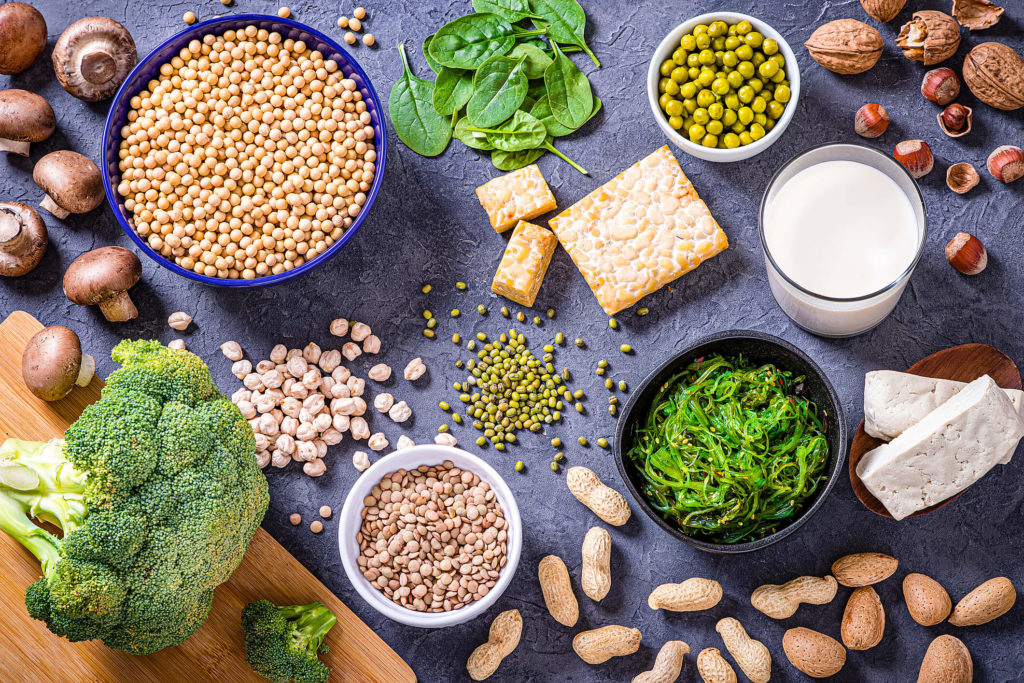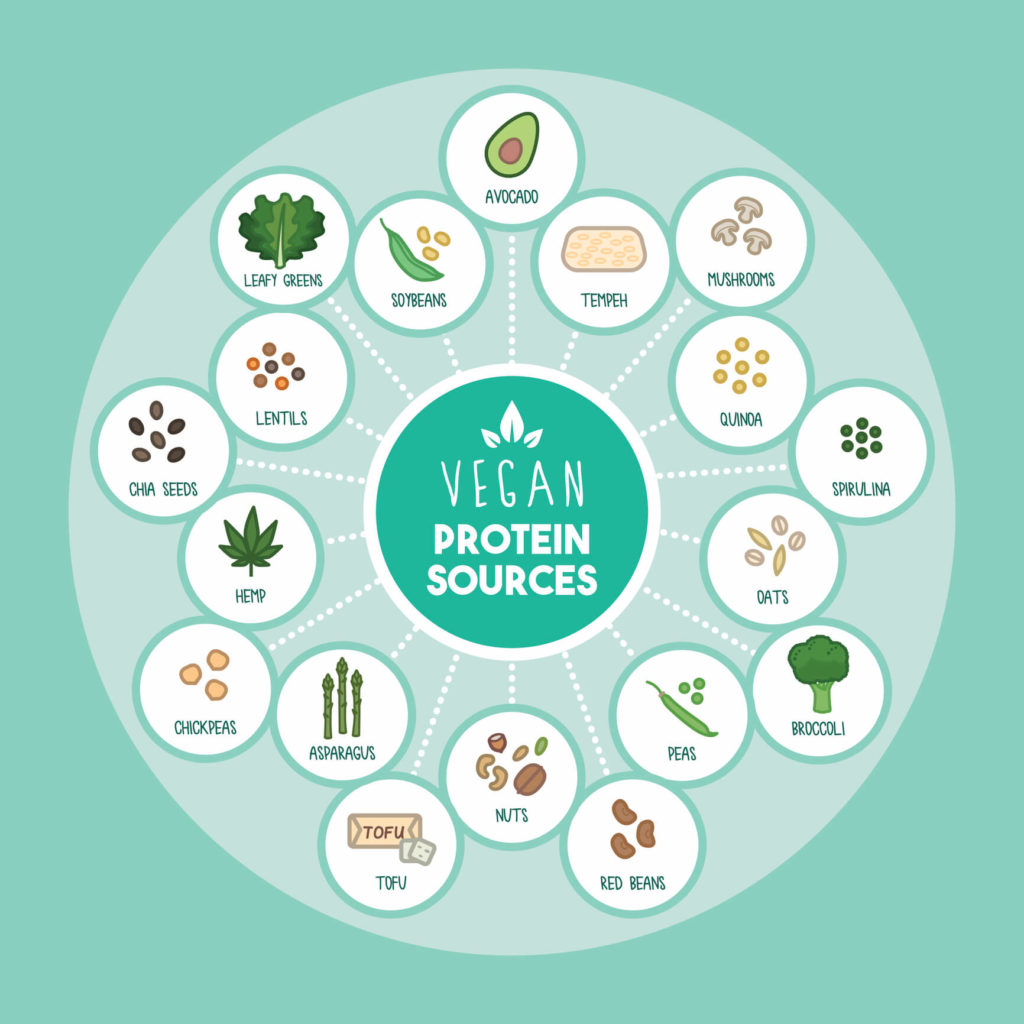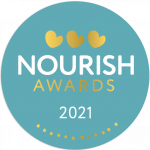A plant-based diet does not have to be protein-deficient. We’re here at Gosh! to tell you about the best vegan protein sources out there.
More people are shifting to vegan or vegetarian diets than ever before, but one of the biggest worries for those transitioning is where they will find their main source of protein.
The idea that meat is the only way to get enough of the good stuff is a big misconception. Chia seeds, hemp seeds, tofu, nuts, pulses, oats, and much, much more are all great sources of protein. Stick with us to find out how to make it work for you!

Why do we need protein?
It is essential that we have enough protein within our diets. Did you know that every cell in the human body contains protein? Your body uses it to build and repair. It also plays an important role in oxygenating your body and helping your immune system to produce antibodies and fight infection.
Protein is made up of amino acids (the building blocks of protein) which help maintain your body’s normal functions. There are nine essential amino acids that are involved in processes like tissue growth, energy production, immune function, and nutrient absorption. The remaining amino acids are known as non-essential and conditional.
Which foods contain all nine essential amino acids?
Meat, poultry, eggs, dairy, and fish contain the essential amino acids- they are known as complete proteins. Finding a complete protein as a vegetarian or vegan can seem daunting, but there are plenty of options out there for those looking to fulfil their nutritional needs.
Quinoa, buckwheat, and soy are just a few of the complete proteins available for plant-based eaters. Plus, you are can combine foods like rice and beans or humous and pita to make sure getting all the essential amino acids you require.

How much protein do we need?
Adults need 0.75 grams of protein per kg of their body weight each day. The average woman should be consuming around 45 grams of protein per day, with the average man looking to take in around 55 grams of protein per day.
Do vegans get enough protein?
In short…yes! The opinion that the vegans, vegetarians, and flexitarians are missing out on their daily intake is outdated and inaccurate. There is an abundance of food sources containing enough protein to keep even the most active of us happy. So let’s get into them…
Best vegan protein sources
Quinoa

- Cooked quinoa provides around 8 grams of protein per cup.
Quinoa is another staple for those looking for more protein in their vegan diet- and it’s got more than protein to offer. Quinoa is also a great source of fibre, iron, magnesium, vitamins, and minerals. Like soy products, quinoa is very versatile.
We recommend using it in pasta dishes and casseroles. Perfect for the winter months!
Nuts

- Cashews contain 18 grams of protein per 100g.
- Pistachios contain 20 grams per 100g.
- Walnuts contain 15 grams per 100g.
- Peanuts contain 26 grams per 100g.
Nuts are a great protein source, essential for any vegetarian or vegan diet. Not only are they a great snack to indulge in between meals, but they can also play their part in the main event. Why not add a crunch to your next salad or homemade curry.
Peanut butter is also famous for its high levels of protein. Kick-off the day with a decent spread on top of whole-grain toast, or end it with a dollop in your favourite sauce for dinner.
Seeds
- Pumpkin seeds contain 19g of protein per 100g.
- Chia seeds contain 17g per 100g.
- Hemp seeds contain 30g per 100g.
Seeds can be sprinkled on top of soup or salads, baked in bread, roasted, combined with fruit, and much more. They are an amazing source of protein and fibre. Chia and hemp seeds are also complete proteins, meaning they should be a priority for all plant-based eaters.
Nutritional Yeast
- 46g of protein per 100g
Nutritional yeast may not sound like the most appealing food on our list, but it is a great source of protein and B vitamins. Vitamin B12 intake is really important for vegans to bear in mind. It is one of the hardest things to come across in a vegan diet, so making sure you get enough of it is vital.
Vegetables

- Green peas contain 5.4g of protein per 100g.
- Broccoli contains 2.8g per 100g.
- Spinach contains 2.9g per 100g.
- Kale contains 1.9g per 100g.
- Cauliflower contains 2g per 100g.
- Avocado contains 2g per 100g.
We all know vegetables are extremely important in maintaining a healthy lifestyle- packed with vitamins, minerals, fibre, and antioxidants, but our familiar green friends also provide us with good levels of protein.
Rice
- Wild rice contains 24g of protein per cup.
- Brown, long grain rice contains 5g per cup.
Rice, like vegetables, may not seem like the first place to look for protein. However, wild rice in particular contains a good amount. Rice is also full of fibre and carbohydrate.
Pulses

- Lentils contain 9g of protein per 100g
- Chickpeas contain 19g per 100g.
- Pinto beans contain 21g per 100g.
- Kidney beans contain 24g per 100g.
Pulses are another great way to sustain protein levels in your diet. They come in all shapes and sizes, colours, and tastes; making them a versatile tool in your arsenal.
Pulses are also one of the cheapest sources of protein on our list. We recommend adding them to curries, salads, rice dishes or casseroles to reap the benefits they have to offer.
Check out our Simple and Stress-Free Seven Day Vegan Meal Plan for some inspiration on how to work these protein-rich foods into your diet.
Buckwheat
- Buckwheat contains 13.3g of protein per 100g.
Buckwheat is not a wheat at all, but rather a grain-like seed. It has a nutty-like flavour and is full of nutrition- plus it’s gluten-free!
There are tonnes of ways you can use buckwheat in your meals throughout the day. Soup, salad, pancakes, porridge, and pasta are just a number of dishes you could use to introduce it to your diet.
Is a vegan diet good for athletes?
Whether or not we are getting enough protein in our diet should be a worry for all of us, but athletes in particular need to be maintaining a higher intake than the average person. This has led to many people shunning plant-based eating when it comes to athlete diets.
As we’ve already shown you, you don’t need to rely on meat for your protein needs, and many high-profile athletes agree.
Lewis Hamilton
A Formula One star with 7 world championships to his name who went plant-based in 2017.
Alex Morgan
Alex Morgan, like Hamilton, went vegan in 2017. She is widely perceived as one of the most successful female football stars of her generation.
Morgan has won two world cups, competed as an olympian, and appeared on the cover of FIFA 16, to name just a few achievements.
Kyrie Irving
Irving is a professional basketball player in the NBA. A seven-time All-Star and a championship winner, Irving has claimed that a vegan diet makes him a stronger player.
If the accolades of these plant-based athletes aren’t enough to convince even the most sceptical out there, then quite frankly, we don’t know what is!
Gosh!’s vegan protein goodness
Here at Gosh! we’re all about flexibility- ready to make your life easier, tastier, and healthier. Some of our vegan products are high in fibre, low in saturated fat, and a source of protein.
Why not give our plant-based Mexican-style burgers a go for your next meal. Not only are they a good source of protein, but they’re also high in fibre and count as one of your 5 a day!
Whilst you’re at it, give our Beetroot burgers a spin. Another great source of protein, low in saturated fat, and a colourful addition to your next meal-time.
If you want to check out some easy vegan recipes that are packed with protein, you should download Gosh!’s E-book. Find inspiration like our Protein Power Bowl, with 23g of plant-based protein in it. We’d love to see your creations, so make sure to tag us on social media and #GoshGoodnessBowls – we’ll make sure to re-share to our page!

